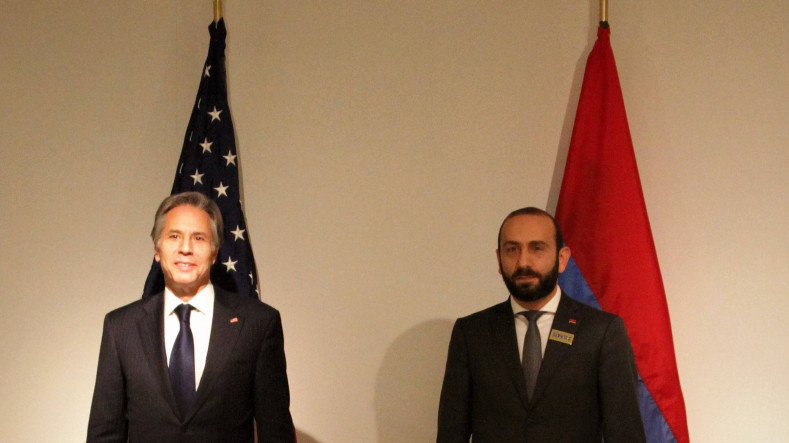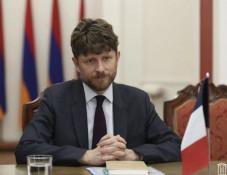
Political analyst: If not for 44-day war, Mirzoyan and Blinken would not have met
Political analyst Suren Sargsyan reflected on a meeting of Armenia’s Foreign Minister Ararat Mirzoyan and U.S. Secretary of State Antony Blinken held in Stockholm on Thursday.
Blinken also held a separate meeting with Azerbaijani Foreign Minister Jeyhun Bayramov.
“The meetings were of "regional" character. That is, the main topics of discussion were the Nagorno-Karabakh conflict and the realities formed after the 44-day war, but not the bilateral agenda. There is no bilateral agenda as such. The fact remains that neither Pompeo and Mnatsakanyan nor Mirzoyan and Blinken would have met If not for the 44-day war, because there is nothing else to discuss,” he wrote on Facebook on Friday.
“What is the policy pursued by the U.S. in the South Caucasus after the war?
1. First of all, the U.S., as a global superpower, cannot remain indifferent to the South Caucasus.
2. Moreover, it is not only about the unblocking of communications, but also about the activities of the OSCE Minsk Group. That is why the U.S. says that the Nagorno-Karabakh conflict has not yet been resolved and the sides have not reached a lasting solution. This means that there must be negotiations with the participation of the U.S. as well.
3. Over the past year, the U.S. has been pushed out of the peace process to a certain extent, giving way to the Russian Federation.
4. The formation of the 3+3 format would also entail the removal of the U.S. from the regional processes, at least in terms of direct influence. I believe that Georgia refuses to participate in this format, given the U.S. factor.
5. The U.S. seeks to remain an influencer in Iran's neighborhood and in a region that is heavily influenced by Russia. As a matter of fact, trilateral agreements should be legitimized by the West as well. The U.S. (yesterday) and the EU (in a few days in Brussels) will lay the groundwork for this process. This is also necessary for Russia, because it means, above all, the sharing of responsibility and also the legitimacy of the statements will never again be questioned by the West.
6. The Iran-U.S. negotiations have not yet yielded a serious result and the U.S. needs to pursue a policy to strengthen its role in the region as much as possible in order to somehow contain or pressure Iran,” Sargsyan explained.
“From a global perspective, the U.S. policy in the South Caucasus and neighboring countries is of a “strategic wait-and-see” and “favorable positioning” nature,” he said.
Related news
Newsfeed
Videos






























